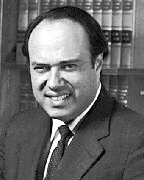This is a busy time of the year. There are many condominium unit closings scheduled for the coming months.
In this article, I want to outline the things a lawyer must do to represent a buyer of a condominium unit. The role of a lawyer is to protect the buyer against risks and to obtain those advantages that are reasonable and appropriate without being a deal breaker. A lawyer should be a deal maker, not a deal breaker.
The purchase of a condominium unit is more complicated than the purchase of a house. The buyer of a unit in a condominium is buying into a community with a set of rules. The buyer of a unit in a condominium must be willing to live by these rules and surrender some freedom.
A lawyer representing a buyer should review the condominium documents, including the master deed, the document which created the association of unit owners, the plans, and the budget. A lawyer must discuss questions involving parking, storage areas, and rental, which are traditional questions. A lawyer should also discuss some new issues such as mold, bed bugs, and smoking.
Next, a lawyer should review the insurance certificate and the sections of the condominium documents which deal with insurance. The lawyer must advise the buyer as to the coverage which the master insurance policy provides. The lawyer must also advise a buyer that he needs his own insurance policy to cover his contents and to cover liability within his condominium unit.
In new construction situations, the lawyer must look at the certificate of occupancy and make certain that all work is completed in the common areas as well as in the unit. In the event work is not completed, there should be a holdback or the closing should be postponed.
A lawyer should work closely with the brokers regarding the offer, which the brokers usually prepare, and the purchase and sale agreement, which I prefer to prepare. As 50% of all sales are short sales, the attorney for a buyer should explain how an offer and a purchase and sale agreement should provide for a short sale. If structured properly, a short sale allows a buyer to purchase property at a favorable price. However, the buyer must understand and agree that if the seller is informed that the seller's mortgagee does not approve the short sale, the offer/purchase and sale agreement will be null and void; the seller shall not be obligated to sell and the deposit shall be returned to the buyer.
A new homestead statute went into effect on March 16, 2011. The buyer's attorney must be familiar with this statute and explain it to the buyer. Among other things, the new homestead statute makes it clear that a trust can declare a homestead. The buyer's attorney should discuss with the buyer the advantages of taking title in a trust given the change in the homestead statute.
The use clause in the condominium documents is very important. For example, if the condominium documents restrict units to residential uses and a buyer wants to run a day care center in the unit, there is a problem. The buyer's attorney must advise the buyer about use restrictions.
When buying a condominium, a buyer must remember that the expertise of the attorney and the broker are most important to a successful purchase.
The buyer's deposits should be held in escrow by the broker. In no event should the seller get the deposit prior to the closing and recording of the deed.
The offer should contain an inspection contingency clause as to both the unit and the common areas and facilities, including mechanical systems, the roof, basement, etc.
Title insurance is important for a buyer. A buyer should be advised to obtain an owner's title insurance policy. This is in addition to a lender's title insurance policy which all lenders will require.
Finally the lawyer should prepare for and attend the closing with the buyer. The lawyer will review all closing documents and adjustments.
A lawyer representing an individual seller, lender, or developer, of course, has different concerns than the lawyer representing an individual buyer.
In any event, the role of the lawyer is critical for condominium unit closings.
Saul Feldman is a real estate attorney with Feldman & Feldman, P.C., Boston.
Tags:
An outline of the steps a lawyer must take to properly represent a buyer of a condominium unit
March 24, 2011 - Spotlights









.png)